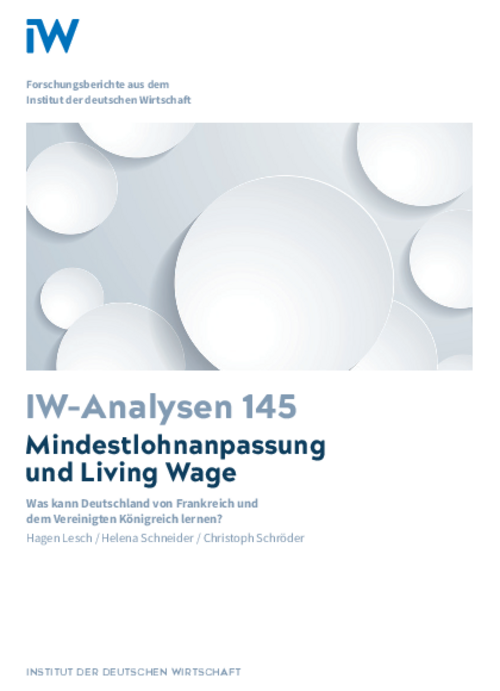Germany’s Minimum Wage Act accords a Minimum Wage Commission the task of deciding on a biennial adjustment to the minimum wage. While including an overall assessment, their decision is to be oriented on the development of collective wages.

Minimum Wage Adjustment and a Living Wage in Germany: What can Germany learn from France and the United Kingdom?

Germany’s Minimum Wage Act accords a Minimum Wage Commission the task of deciding on a biennial adjustment to the minimum wage. While including an overall assessment, their decision is to be oriented on the development of collective wages.
This binding rule has proven its worth. While the collective bargaining system has come under pressure to make adjustments in certain low-wage sectors, there have been no long-term detrimental effects on the collective bargaining process. The amendment to the adjustment mechanism proposed by the Federal Minister of Labour, which requires the minimum wage to be based on median income, would jeopardise this success and make se rious inroads on collective bargaining autonomy. The experience of France and Britain shows that, unless firms received wage subsidies, transforming the minimum wage into this so-called ‘living wage’ would create negative pressure on employment. This argument – together with the fiscal burdens such subsidies would give rise to – needs to be addressed when the policy is debated. Moreover, it should be borne in mind that the introduction of a living wage in the United Kingdom in 2016 took place in a highly favourable economic environment and that the measure includes an emergency brake for less favourable circumstances.

Minimum Wage Adjustment and a Living Wage in Germany: What can Germany learn from France and the United Kingdom?

More on the topic

German Wage Policy between Inflation and Stagnation: Are Conflicts with the Aims of Monetary Policy Looming?
After the economic and financial crisis of 2008/9, the German labour market soon began to recover, creating scope for a comparatively expansive wage policy.
IW
The Pros and Cons of Trade Union Membership
The decline in collective bargaining coverage in Germany is often attributed to the reluctance of companies to join an employers' association which negotiates collective agreements.
IW